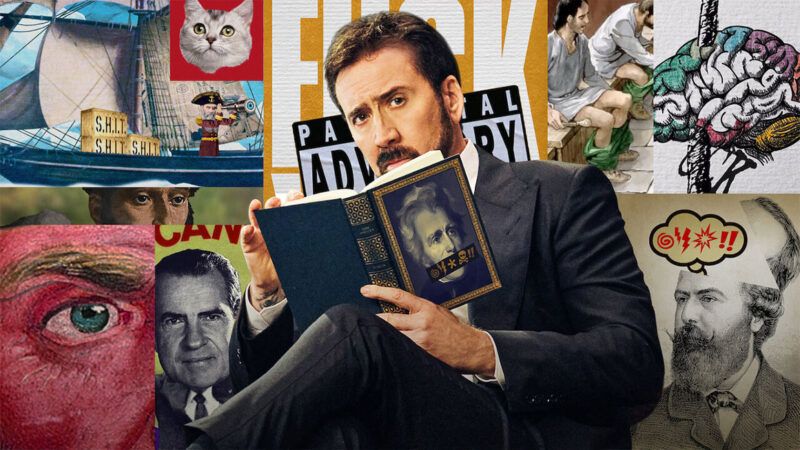History of Swear Words
The most interesting aspect of the series is how it unintentionally reveals our conflicted relationship with profanity.

Netflix's History of Swear Words isn't good, exactly. But the series flawlessly delivers on its premise: What if Nicolas Cage narrated a history of expletives?
Despite being a fan of both profanity and etymology, I learned a few new facts from Cage's manic, poorly rehearsed narration and the parade of talking heads propping him up. Hollering dirty words may actually help you tolerate physical pain better, for instance, and the word dick only gets bleeped on network TV when used anatomically rather than derogatorily.
The most interesting aspect of History of Swear Words is how it unintentionally reveals our conflicted relationship with profanity. "Damn" and "Bitch" are spelled out on the list of episode titles, while the other four get the asterisk treatment. Yet bitch is treated with by far the most delicacy and caution. Cage looks shiftily uncomfortable saying it in his opening monologue.
As society's aversion to obscenity or crudeness is fading, our vigilance about sexism is increasing. Maybe that's why words disparaging women have become more fraught than those that refer to the acts of copulation and excretion.
But just when I thought I had it all figured out, Cage and Co. cheerfully agree that the word pussy is nothing but good fun. Not unlike History of Swear Words itself.


Show Comments (25)